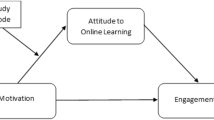Abstract
The Teacher Approval-Disapproval Scale was administered to three groups of elementary school boys: those considered by a teacher as hyperactive and referrable; those considered as among the most active but not referrable; and normoactive classmates. The three groups of boys differed significantly in their responses to 8 of 11 individual scale items, which ask the child about the amount of teacher approval and disapproval directed toward himself personally or about the frequency of his own happiness and unhappiness in the classroom. The three groups of boys differed significantly on only 2 of 11 counterpart class items, which ask the child about teacher behaviors toward the class as a whole or about the happiness and unhappiness of the entire class. The hyperactive boys said they received significantly less approval from teachers for academic, motivational, and social behaviors than did the normoactive boys and significantly more general disapproval. The present study is among the few that report differences between hyperactive and comparison groups on self-report questionnaires. The results suggest that what appears to be greater teacher disapproval of boys than of girls may in fact be simply greater teacher disapproval of children with disruptive behavior problems, most of whom are boys.
Similar content being viewed by others
References
Barker LJ: The development of scales to measure junior school children's attitudes.Brit J Ed Psychol 39:64–71, 1969.
Beere C: Development of a group instrument to measure young children's attitudes toward school.Psychol Schools 10:308–315, 1973.
Berk L, Rose M, Stewart D: Attitudes of English and American children toward their school experience.J Ed Psychol 61:33–40, 1970.
Fitt A: An experimental study of children's attitude to school in Aukland, N.Z.Brit J Ed Psychol 26:25–30, 1956.
Tenenbaum S: Attitudes of elementary school children to school, teachers, and classmates.J Appl Psychol 28:134–141, 1944.
Leeds C, Cook W: The construction and differential value for determining teacher-pupil attitudes.J Exper Ed 16:149–159, 1947.
Jackson P, Getzels J: Psychological health and classroom functioning: A study of dissatisfaction with school among adolescents.J Ed Psychol 50: 295–300, 1959.
Meyer W, Thompson G. Sex differences in the distribution of teacher approval and disapproval among sixth-grade children.J Ed Psychol 47:385–396, 1956.
Jackson P, Lahaderne H: Inequalities of teacher-pupil contacts.Psychol Schools 4:204–208, 1967.
Good TL, Brophy JE: Behavioral expression of teacher attitudes.J Ed Psychol 63:617–624, 1972.
Silberman ML: Behavioral expression of teachers' attitudes toward elementary school students.J Ed Psychol 60:402–407, 1969.
De Groat AF, Thompson G: A study of the distribution of teacher approval and disapproval among sixth-grade pupils.J Exper Ed 18:57–75, 1949.
Davidson H, Lang G: Children's perceptions of their teacher's feelings toward them related to self-perception, school achievement, and behavior.J Exper Ed 29:107–118, 1960.
Herrmann R: Classroom status and teacher approval and disapproval—Study of children's perceptions.J Exper Ed 41:32–39, 1972.
Martin R: Student sex and behavior as determinants of teacher approval and disapproval among sixth grade pupils.J School Psychol 10:339–346, 1972.
Werry J, Quay H: The prevalence of behavior symptoms in younger elementary school children.Amer J Orthopsychiat 41:136–143, 1971.
Whaley-Klahn MA, Loney J, Weissenburger FE, et al: Responses of boys and girls to a behaviorally-focused school attitude questionnaire.J School Psychol, in press.
Whaley MA, Loney J: The Teacher Approval-Disapproval Scale: From the mouths of babes. Paper presented at the meeting of the American Psychological Association, New Orleans, 1974.
Bechtoldt H: A confirmatory analysis of the factor stability hypothesis.Psychomet 39:319–326, 1974.
McNemar Q:Psychological Statistics. New York, John Wiley & Sons, 1962.
Madsen CH, Madsen CK:Teaching/Discipline: A Positive Approach for Educational Development (expanded 2nd ed for professionals). Boston, Allyn & Bacon, 1974.
Author information
Authors and Affiliations
Rights and permissions
About this article
Cite this article
Loney, J., Whaley-Klahn, M.A. & Weissenburger, F.E. Responses of hyperactive boys to a behaviorally focused school attitude questionnaire. Child Psych Hum Dev 6, 123–133 (1976). https://doi.org/10.1007/BF01435494
Issue Date:
DOI: https://doi.org/10.1007/BF01435494




